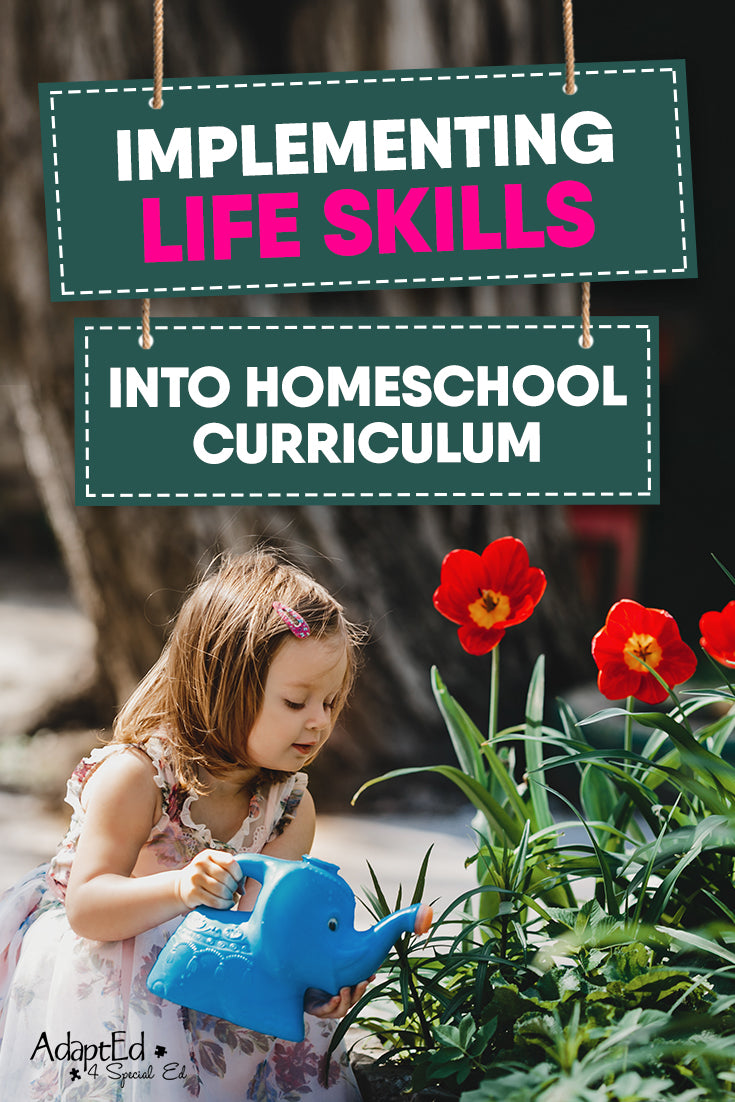When most people think of homeschooling, they imagine the usual curriculum with a lot more hands-on learning and more opportunities for field trips. For families who are homeschooling children with special needs, adding life skills into the curriculum is just as critical as reading, writing, and math.
The functional skills that are typically learned early on can be challenging for children with developmental disabilities. They typically learn by watching others and require lots of repetition and practice to master these skills.
Teaching those necessary skills that come naturally to their siblings and peers takes a lot of extra effort, but learning life skills early on will pay off in the long run.
Teaching Functional Skills
Functional skills are skills that enable someone to be independent. One of the most important goals of any student in a special education program is to gain as much autonomy as possible. Since every child has unique abilities, their goals may range from feeding themselves to learning how to navigate public transportation alone.
Math skills
Achieving total or partial independence requires learning some functional math skills such as
telling time and money management skills like balancing a bank account, using a debit card or checkbook, and making the correct change. Understanding measurement and volume are essential for learning to cook meals independently.
Community-Based Skills
One of the best ways to teach kids the skills they need to be independent is by going out in the community. Learning firsthand about public transportation, following directions to wherever they’re going, ordering in restaurants, and grocery shopping are just a few of the community-based skills that will allow them to be as independent as possible.
It’s often nerve-racking for parents and caregivers of children with special needs to let them venture out on their own, which is why giving them the best head start is essential. By introducing these skills at home as part of their homeschool curriculum and taking them out to practice what they’ve learned, you’re setting them up for success later on.
Safety
Safety is often a big concern when it comes to raising children with disabilities. Some kids have poor impulse control, while others have other physical impairments that make navigating life independently seem daunting. Teaching basic safety skills at home, such as setting the oven, is one of the first steps to learning how to cook alone.
Knowing personal information such as address and phone number in case of an emergency is always a good idea. Our All About Me adapted book is a great way to reinforce this information and more in a fun and engaging way.
Social Skills
For many students with disabilities, social skills don’t come as easily as they do for their peers; they need to be consistently taught and reinforced. Learning how to meaningfully and appropriately interact with others is one of the most valuable tools we can teach them, so they will be able to function independently in the community.
Modeling is the number one way to demonstrate social skills, but preparing them for real-world scenarios is just as important. Practicing hypothetical questions can help with critical thinking skills, conversation skills, and social-emotional development as kids contemplate solutions to real-life situations.
Check out the life skills products on our website for more information and ideas on implementing these skills into your homeschool curriculum.



